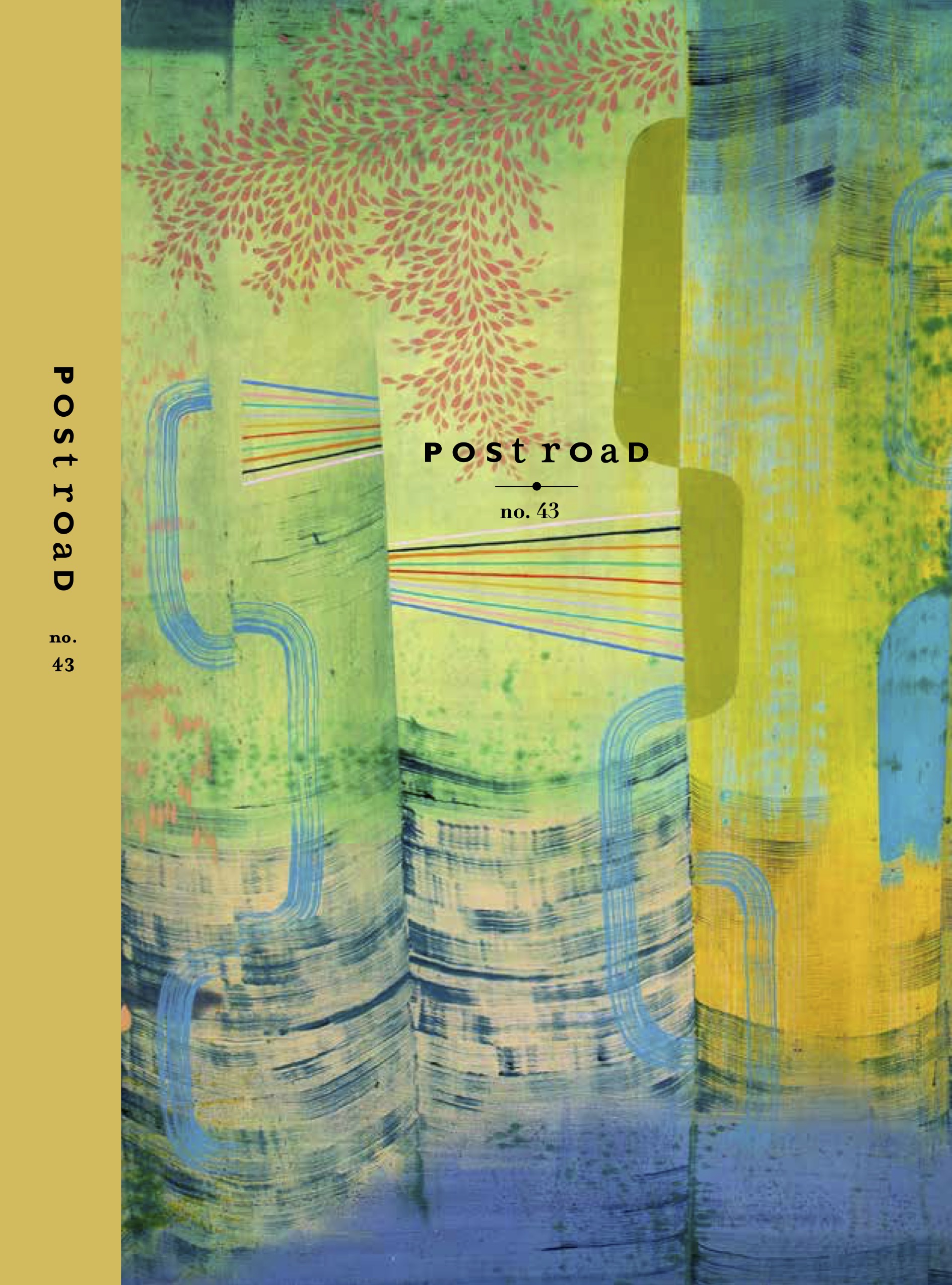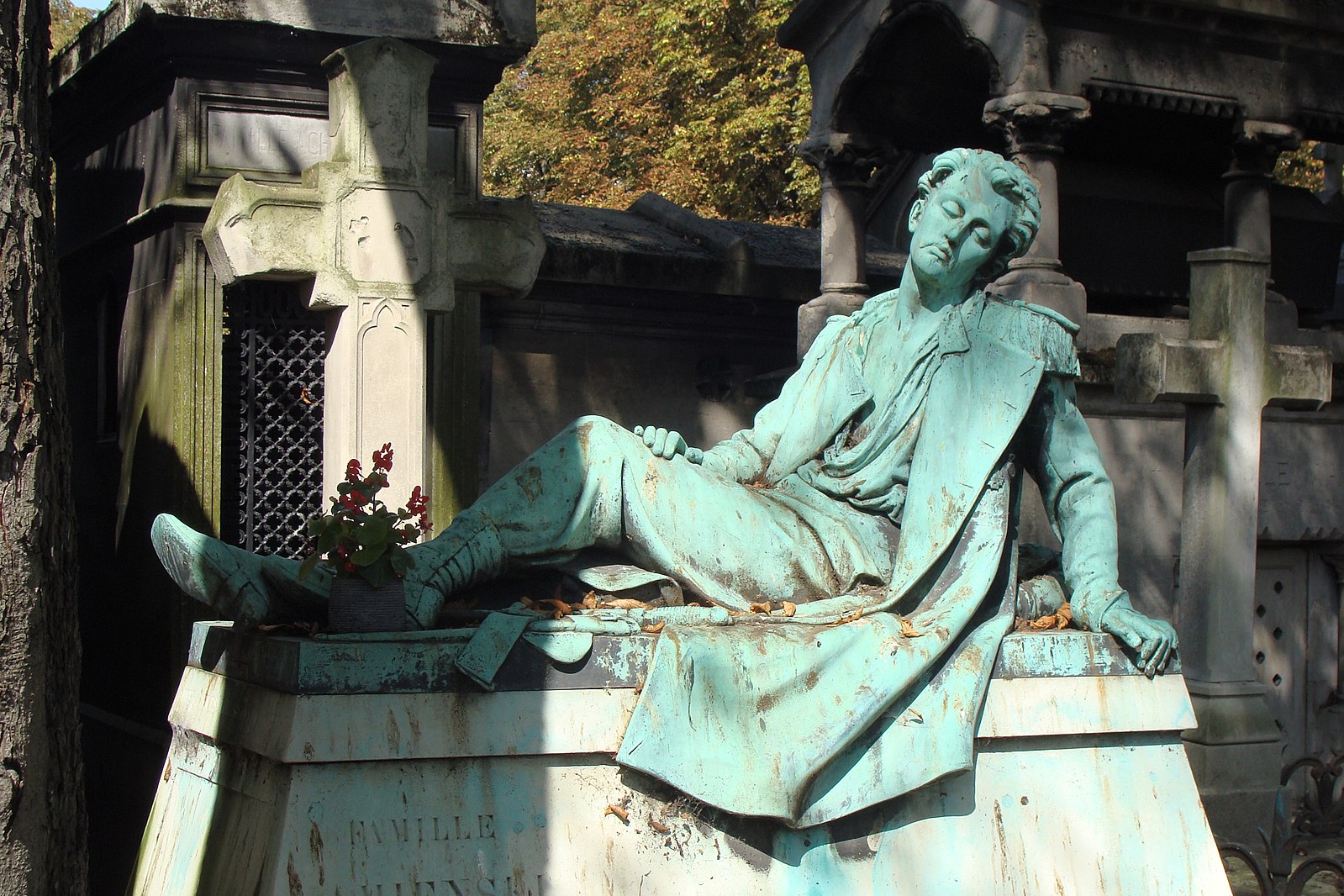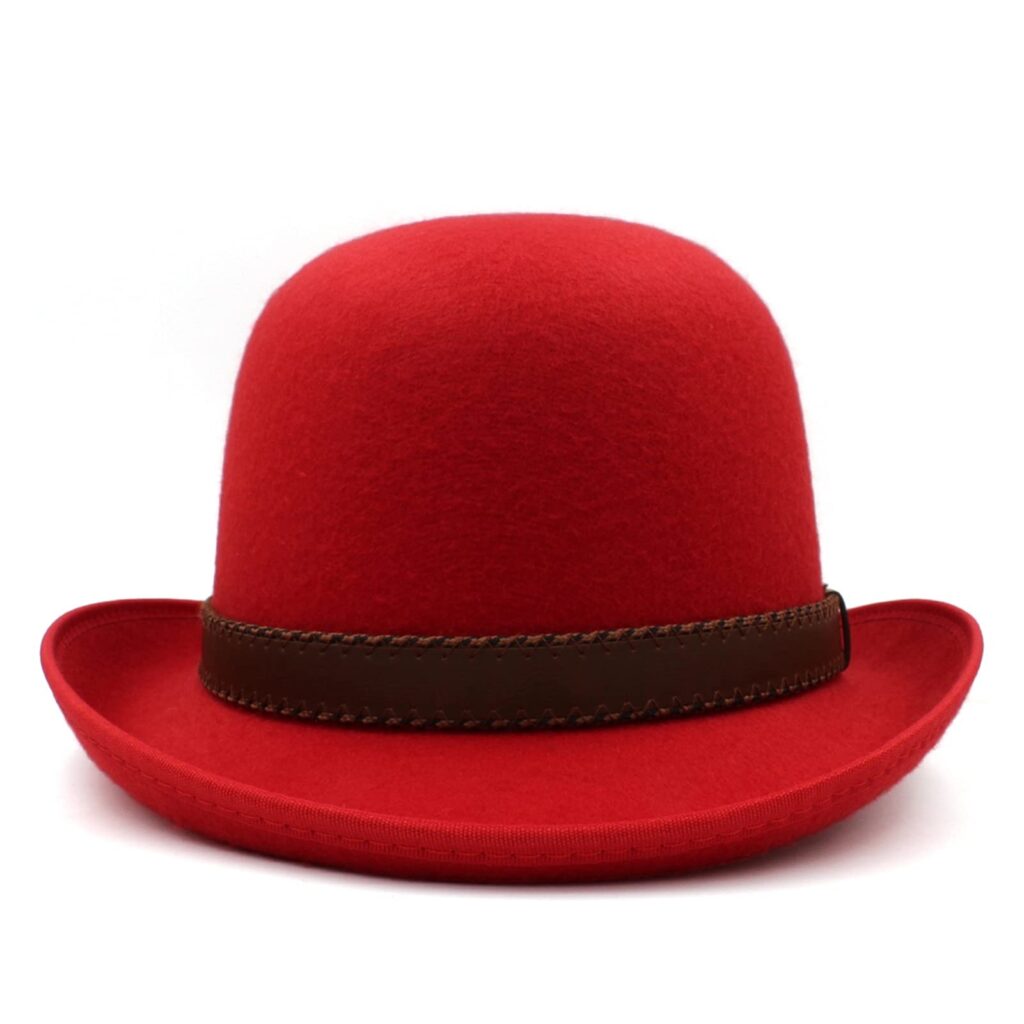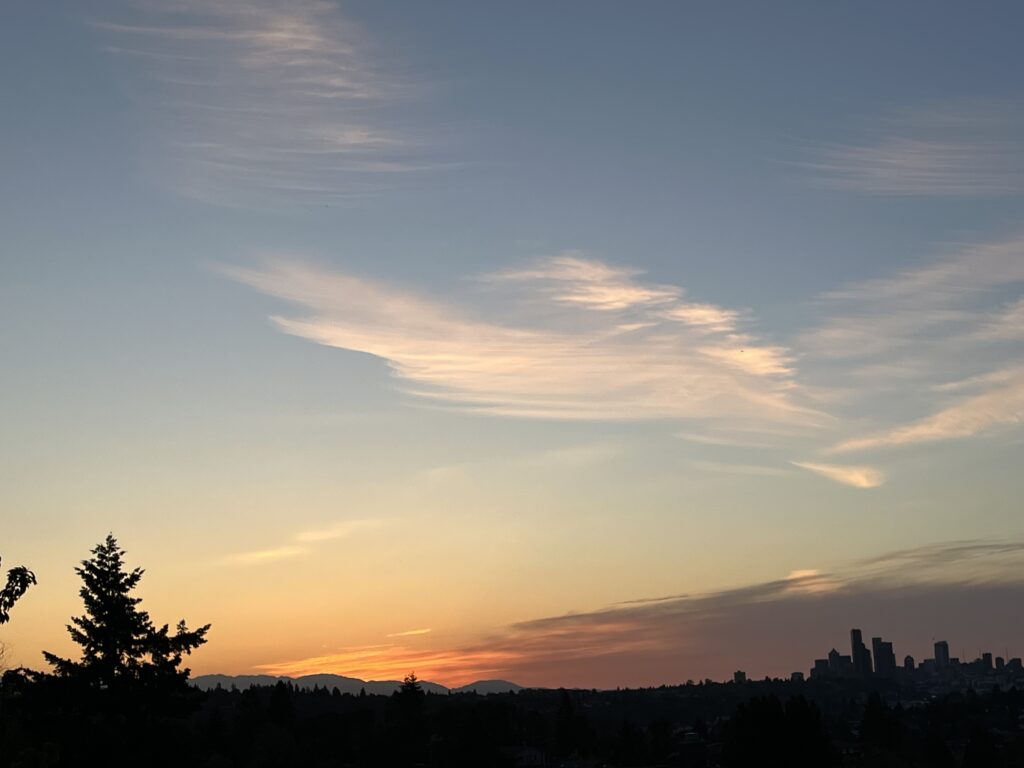Delivery
Olivia Worden
Three hours ago he had been a child. His thin cotton shirt fused to his skin. It was raining. It was his only shirt. He kept it clean by washing it at night in the public restroom. Cleanliness had always been important to him. He would not smell like the others. He held the package, wrapped in a stained hotel bathrobe, beneath one arm and tried to keep it dry. Twenty American dollars were pressed into his palm. The folded bill smelled like cheap perfume and skin bleaching cream. A flimsy curtain, a faded shade of mud, was drawn between them. Her lips were the color of Coke cans. He would never see her again. In the distance, he could hear the river.
His father called him Bulhaengah, the word for unlucky. His birth name was Suk. In Korean it meant hardness. He was born feet first and blue. It had happened by the Geum River and was followed by a funeral. His father couldn’t afford to bury his mother on the mountain of her ancestors. She was buried in a dust plot next to strangers. His father contracted syphilis on Suk’s first birthday. He claimed it was a curse from the restless spirit of Suk’s mother. She had always been vengeful. His skin blistered open but he refused to see a doctor. He jumped off a bridge when Suk turned two.
His uncle calls him unlucky hardness. They live outside of Okku-Silver Town and sell all things American to soldiers from places called Milwaukee and Amarillo. His uncle is a man who never smiles. He only has five teeth. He will not pay for dentists. Every week he goes to the massage parlor in Okku and pays for a pedicure. He will not go at night because he believes nail clippings will turn into a spirit that will kill him. He does not like Bulhaengah Suk, but it is his familial duty to care for him. He feeds him rice and kimchi and on Tuesdays ballpark hotdogs without the buns. He does not like Americans but they like his cigarette selection. He is always five cents cheaper than his competition. This is what makes for good business in A-Town.
It happened quickly. B had not anticipated this delay in his schedule. Her floor was covered in bazooka bubblegum wrappers. He closed his eyes and envisioned his bike propped against the alley wall. It was rusty with a leaky front tire. It bothered him that his uncle had not replaced it, especially after the accident. The scar on his chin looked red and angry. It was not his place to question his uncle.
The wrappers crinkled under their torsos shifting. The sound reminded him of stepping on cockroaches. He was suddenly concerned about the apples. He had left the sack in the cart on his bike. They were small, the ones with wormholes and brown bruises his uncle couldn’t sell. There were twelve in the bag. Some were golden and some were red. Her hair smelled burnt and her eyeliner was smudged. The nun they were going to was colorblind and the children had teeth that were rotting. They didn’t care about wormholes as long as their food was soft. Her hand was soft against his mouth, her painted nails chipped and broken. The room smelled faintly of fish. The nun’s hands were large like a man’s. She would invite the boy behind the gates, but he always declined. They did not believe in the same God. She slapped him. The dust that fell smelled like men from foreign countries.
Do you think I’m pretty?
He wiped himself on a towel next to the mattress. She squinted at his bowed legs and lit a cigarette.
You’re just a boy. What do you know?
The button on his pants was missing. She flicked ash in his direction.
You’re ugly, too. Lucky I’m feeling generous today, huh?
B pulled out the extra pack of Marlboro Reds from his jacket pocket. There was a belt mark on the back of her thigh, long and purple. She thrust her hand out and waited. He placed the box in her palm and went out the door. He was no longer a virgin.
The soldiers from the base could not pronounce his name. They called him B instead. B means nothing but in America names do not have meanings.
B, my man, what do you have for me today? The redheaded soldier stuck a freckled hand out for a high-five. It was always the same.
What kind you want?
What kind you got? The soldier raised an eyebrow and gave B a wink.
B was short for his age but he was not a child. He was sixteen. Not much younger than some of the Americans. But he was not their equal. He was hair to tousle and a shoulder to punch. They taught him American swear words and showed him pornographic magazines. He lied and said he had been with many women. They called him Casanova, which meant something funny in Italian.
The redhead ripped the package and tipped the contents into his mouth. B could hear the fizz as the candy met saliva.
Cherry’s my favorite but grape’s a close second. He tore the second package and consumed it. Your uncle always has the best selection. Where is the old bastard anyway?
Out for beer.
Left you in charge, huh? The redhead balled up the candy wrappers and shot them at B’s head. B shrugged his shoulders. The redhead dug into his pocket and put fifty cents on the counter. Try to stay out of trouble, motherfucker.
Okay, big asshole. The soldier laughed and threw up a hand as if swatting a fly. B bent down and picked up the wrappers.
Soo Yun was born in a hospital in Seoul. Her father sold insurance to wealthy businessmen from the city. He liked ties with stripes and gold plated cufflinks. He laughed easily and often whispered in Soo Yun’s perfect ear that he loved her more than her mother.
Her mother had been a singer in A-Town when she was sixteen. She was from a village she didn’t like to speak about. She didn’t come from options. She sang in a club that served drinks the color of wiper fluid. They hung tiny monkeys from the rims of plastic cups. Her mother sang in English to make the soldiers happy. They told her she sounded like Olivia Newton John. She dreamt of singing on a stage in America. She made it as far as a nightclub in Seoul. This is where she met Soo Yun’s father. They were happy for a while.
When Soo Yun was born, her mother’s hair turned white. She was still beautiful, but her eyes grew red from crying. She had always been vain. At eight, her family vacationed in Busan. It was snowing. Her mother crashed their car. Soo Yun remembered the way the snowflakes melted on the tip of her tongue. The officer who held her said it only snowed six times a year. The newspapers reported that it wasn’t an accident. She cannot remember their funerals, but the lines on the nun’s hand that walked her into the orphanage are imprinted on her right shoulder. Soo Yun got to keep her father’s gold plated cufflinks. They were made in the shape of a lotus.
Bulhaengah ran deliveries every Wednesday. His uncle complained that his back was too twisted to ride the bike.
You are lazy and stupid. What a burden your father has left me. The least you could do is run deliveries for your elderly uncle. Have I not been like a father to you? Have I not kept you from begging on the streets? His uncle rocked on his heels as his voice grew louder.
Bulhaengah had heard this speech many times. He knew to keep his eyes on the ground and his head bent low. He knew that there were many things he was, but stupid was not among them. He would do as his uncle told him and then one day the shop would be his. It was a tiny speck of a dream, but Bulhaengah allowed himself to dream it.
The air was sticky on his face. Busan had been enveloped in the damp towel of a surprise October heat wave. The street cats and dogs peacefully shared the shade, panting in unison, stretched out as far as their limbs would allow. Babies cried tearless wails, dehydrated and exhausted in their mothers’ laps. Bulhaengah peddled slowly; trying to conserve the energy he knew he would need to get through all the deliveries. This was a new business plan his uncle had come up with. Once a week they would run groceries to customers who couldn’t walk or drive to their store.
People pay for convenience. We offer them something no other shop in A-Town does, store to door delivery. Your uncle is a smart man. You will see. I will be rich.
It hadn’t quite turned out the way he had imagined. They only had four or five customers who asked for the service. They were mostly older locals who were loyal to Bulhaengah’s uncle and a couple American wives who didn’t like to leave their houses unless in the company of their husbands. But the delivery runs were simple and allowed Bulhaengah time to dream.
He hadn’t realized what was happening until it was too late. The delivery truck had been driving parallel to him on the road. The world had gone quiet except for the sound of wings from the flies in the alley. Lying in the hospital, Bulhaengah would recall the color orange from the side of the truck. He could not say whether the image was a peach or the sun. The truck was going too fast, the roads too narrow through A-Town. Bulhaengah had to concentrate to stay out from under the wheels. And there had been blue. The flash of blue silk, billowing in dust. The woman had looked to the sky, opening and closing her mouth with words he couldn’t hear. He tried to steady the bike. The truck was going too fast. The woman held something to her chest. Bulhaengah heard the sound of wings. The truck was going too fast. The woman looked to the sky. A tiny hand touched her face. And she jumped like falling, out and under spinning rubber. Bulhaengah heard screaming. His mouth was open. He saw orange and blue and red. Then nothing.
His uncle came to get him the next day. He asked first about the bike. Miraculously, it had been spared. Bulhaengah had avoided any life threatening injuries, though purple and blue bruises covered his skin. A gash on his chin had required twenty-four stitches. The scar would heal red and this part of his face would not grow hair. The scar would become his most distinguishable feature, even as an old man.
A week after the accident Bulhaengah dared to ask his uncle what he already knew.
Of course she is dead. Why do you ask such stupid questions? To kill yourself and your baby too-I pray she has no family for her spirit to haunt. And I pray you have not brought her spirit home with you, asking such stupid questions.
Bulhaengah heard from the redheaded soldier that the woman was a prostitute. She had had the baby of one of the soldiers.
Bring us to America. She thought that he loved her. The soldier laughed. He was married. No one wants a whore with a baby in the room. She was seventeen.
At night, Bulhaengah dreamed in blue.
Soo Yun watched the man inspect the cufflinks under the light.
100,000 won. Gold plating, not the real deal. The man stared at Soo Yun’s swollen stomach, letting his eyes wander to where the fraying hem of her dress barely grazed the top half of her thigh. She had no money for clothes that fit.
They are worth more. Soo Yun shifted her weight, leaning over the counter to expose her breasts. The man averted his eyes.
Free to take them elsewhere. Soo Yun felt her mouth dry up, the burn of acid creeping up the back of her throat. Eight months ago he would have given her what she wanted.
Fine. I take it in American.
B watched the girl squeeze out between the iron bars of the gate. Her left knee was skinned pink and raw. She bent to scratch her ankle, nervously scanning the empty street. She reminded him of the rats that came out at night, sniffing the air, searching for jaws of feral cats. B tucked himself deeper into the alley, straightening his spine against the wall. His heart crashed against breastbone. She paused, listening, cocking her head a little to one side. And then she was running; tangled hair in the wind. Five years later, they would meet again.
B would imagine she recognized the sound of his heartbeat.
She beat her womb with palms holding stones. She left bruises, the pattern of river bottom across her skin. She filled herself with alcohol and fistfuls of parsley. Yet, it persisted, growing to hands that beat back and legs that kicked. Soo Yun whispered hateful words, wishing twisted spines and malformed skulls, clouded eyes the color of faded blue paper.
The redheaded soldier stared blankly.
It’s yours. What you gonna do about it? She had grown too round to hide it under clothes. She had fucked men on her stomach, pressing umbilical cord and half formed organs against secondhand lingerie and sweat-stained mattresses hoping they wouldn’t notice.
I don’t believe you. Anger crept up his neck and spread out across his face in blooms of heat.
It broke. Remember? You say no problem. You call me a liar? She pushed herself up on her elbows, a rocking motion, propelling her upright.
You fuck men for a living. He was shouting. Shouting like this was information the neighborhood didn’t already know. How many? His jaw clenched and unclenched. His hand rested on his revolver.
Yeah? I fuck you. What you gonna do about it?
Do not go in. You leave the package at the door. Bulhaengah’s uncle picked at a sore above his lip. Bulhaengah kicked at the floor. We all know you are stupid. This is not your fault. Your father was stupid too. Fools bearing fools. But she, she is paid to fool. If you look her in the eye you will be lost. This is fact.
Bulhaengah picked up the paper bag, peeking in to see its contents. A six-pack of beer, Marlboro Reds, and a pink box that read Tampax. His uncle’s palm met Bulhaengah’s head.
You just deliver. Remember that.
She woke up screaming, the taste of snow in her mouth. For a moment Soo Yun wasn’t sure where she was-behind the tall iron gates of the orphanage, in Seoul wrapped in the musk of her father’s aftershave, or the floor that she rented, covered in shells of cockroaches and streaks of petroleum jelly. The rancid scent of week-old fish invaded her nostrils. She turned and vomited. She remembered.
There was something familiar about the delivery boy. There was something familiar about his hiding, the negative space he embodied, his smallness. She had been that once, squeezing out between metal. Her face had once been clean, her tongue uncoated. But you don’t survive by being clean. Clean does not feed you.
Girls don’t survive on the streets of A-Town . The nun had held her by her elbow, catching her mid-crawl out the window. Twelve-year-old Soo Yun pouted, folded her legs back over the ledge, allowed the nun to lead her back to her cot in the row of sixteen cots, each belonging to a child with no parents or parents who had forgotten them.
The nun should have told Soo Yun the truth: the body survives. Five years beyond the walls of the orphanage had taught her this. Every imprint, every invasion, hundreds of fingernails and tobacco yellowed teeth, they all left scars. Wounds healed despite their festering. The body can be marched on. The body can be spoiled and rotted. But the body survives.
Soo Yun’s legs opened and allowed the boy to climb in unsheathed and trembling. It was an act of searching. And for a second it felt like wholeness.
The redheaded soldier took out a matchbook, lighting the tip of the cigarette in a single strike. B watched the tip burn orange, a wisp of smoke curling, grey bits of ash falling like snow.
B had noticed the soldier was redder than usual. His eyes were bloodshot, his forehead flushed, his hands raw from massaging ruddy stubble that covered his neck and chin. He paced in front of the counter muttering under his breath, shuffling his boots, leaving scuffmarks in black across the floor. B stood still and thought of things that were quiet and invisible. He closed his eyes for a second.
The redheaded soldier grabbed B’s wrist, yanking him so forcefully, B’s face hit the countertop. The redheaded soldier dropped his hands, backing away from B, shaking his head back and forth, and filling his lungs with short, shallow breaths. His cigarette rolled on the floor, the orange tip still burning.
I’m sorry. I’m sorry. His freckled hands knotted into his hair, pulling at the roots. B swallowed the familiar copper taste of blood.
You…you not right. The soldier looked at B, slack jawed, sweat rolling down his face. He stomped on the cigarette but did not pick it up.
Fuck this place, man. Fuck it. Didn’t even want to come here! He slammed his palms against the counter, the coins in the register clinked. And my folks! My folks! What am I supposed to tell them? He threw himself backwards, twisting his arms around his chest, his feet stumbling over themselves in an awkward side-shuffle. She’s a whore, you know? And it’s not a puppy. It’s a fucking kid. A slanty-eyed, half-breed – Jesus! The soldier started laughing, doubling over, holding his knees, rocking. For once, B wished his uncle was there.
The soldier stood upright, trying to catch his breath. He looked at B then, looked at B like he was seeing him for the first time.
Tell me what I’m supposed to do?
The redheaded soldier’s face had gone from the color of tomatoes to the flesh of steamed fish. For the first time, B noticed the soldier’s eyes were blue. Blue like silk billowing in dust. Blue like falling. B’s chin throbbed. His mouth opened before he could stop himself, a finger pointing to the sign in the storefront window.
Delivery for cash. I deliver.
The old man slowly made his way to the bench by the river. His feet shuffled across the ground, the sound blending into the rush of the water. Each day a new part of his body made known its protest, a creaky knee, shoulders stooped like crumbling plaster of an abandoned building. It took more and more of an effort to get to this place but still he came. It was a compulsion he could never explain to his wife or children.
At night he would come home with wet cheeks and a heavy tongue, stuffing forgotten names Bulhaengah and B into damp coat pockets. He had lived many lives. But had returned to hardness, feet first and blue.
Those nights Suk would wake, holding his chin in his hands, feeling for stitches that were no longer there, hearing the familiar fizz and pop of candy meeting saliva. Those nights he would wake feeling a weight in his arms, soft breathing that smelled faintly of milk, rain rolling down his nose and onto pink lips opening and closing like the mouth of a fish.
Maybe he had always known she was his. There had been nothing red about her. He had looked, cataloging and memorizing every inch of her body, looking for the parts that would somehow tell him there was no other way. That this was the only.
Then, maybe it was the way that Soon Yun pushed the newborn into his arms, holding Suk’s gaze for a moment too long before abruptly turning, the back of her hand against her mouth, holding in a sob. Maybe he just wanted it to be true so that the hole that grew inside him could have some meaning. So that the emptiness he felt years later at the birth of his first son wouldn’t be so shameful. Maybe he wished it so he would no longer feel regret.
Fools bearing fools.
Bulhaengah pushed it between iron bars, the package wrapped in a hotel bathrobe, an enveloped stuffed with American bills, a tiny hand opening and closing, catching raindrops. It didn’t take long for the wailing to begin. A high pitched sound like sirens.
He waited in the alley. Waited to hear heavy footsteps of the nun with large hands. Waited to hear her call for help, to hear the hands pick up the package. Waited for the wailing to become a hiccup, to become a mew. Bulhaengah waited until the sky cleared, his spine pressed against the wall, his face to the stars.
Night expanded around him, illuminating the dark with shards of moonlight. The old man closed his eyes, arms outstretched, trembling. He held the weight of the river. He held the expanse of the sky. Life had never felt so long. He closed his eyes and wept.
Olivia Worden is adopted from Seoul, Korea and grew up in Dartmouth, Massachusetts. She holds an MFA in Writing from Sarah Lawrence College. She has taught creative writing and diversity/inclusion training at Roger Williams University, Sarah Lawrence College, Andrus and the Westchester County Correctional Facility. Her writing has appeared or is forthcoming in CutBank, Dark Phrases, The Sarah Lawrence Literary Review and Point of View Productions. She lives in the Bronx.





